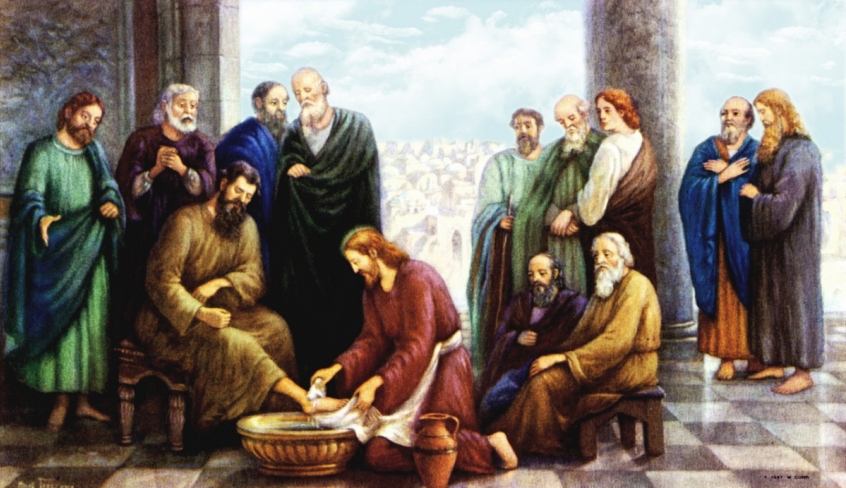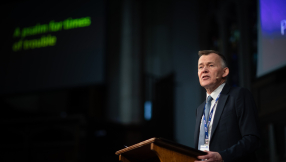A study released by Barna last week revealed that 51 per cent of US churchgoers don't know of the 'great commission', Jesus' command to 'go and make disciples of all nations'. Is it a sign of a fatal flaw in contemporary church culture?
The apparently not-so famous commission comes from the final chapter of Matthew's Gospel, and are Christ's last words before he ascends to heaven:
'Then the eleven disciples went to Galilee, to the mountain where Jesus had told them to go.When they saw him, they worshiped him; but some doubted.Then Jesus came to them and said, "All authority in heaven and on earth has been given to me. Therefore go and make disciples of all nations, baptizing them in the name of the Father and of the Son and of the Holy Spirit, and teaching them to obey everything I have commanded you. And surely I am with you always, to the very end of the age"' (Matt 28:16-20).
Of those surveyed, only 17 per cent recognised the phrase 'the great commission' and what it referred to. But might this Christian amnesia might simply be excused as a question of jargon?

When given the passage and not just its extra-biblical 'title', a few more (37 per cent) recognised it as The Great Commission. Evangelicals were the most likely church group (60 per cent) to recognise the commission and what it means. Being generally more familiar with the Bible, the tendency is understandable, whilst reference to the Great Commission (in mission trips to 'the nations' for example) is more prevalent in the evangelical wing of the church.
It's important not to presume too much from a survey and to simultaneously recognise that knowledge of certain jargon does not equal an interest in or understanding of what it represents. Nonetheless, it's not outrageous to suggest that the apparent obliviousness to Jesus' command belies a worrying church trend – one in which the life of discipleship is frequently ignored.
The Matthew passage is deeply significant. Not only does only does it give Jesus final words of blessing and assurance before he departs earth, but it also stands as a significant text for Trinitarian theology (clearly naming the Father, Son and Spirit together), and makes explicit that the gospel is not just for Israel but 'all nations' (ethnicities). Centrally it elevates the work of 'discipleship': of being a follower of Christ who in turn 'teaches' others to walk the same path. Implicit is not merely a life of belief (e.g. 'trust in Jesus as your Lord and Saviour'), but of instruction, practice and transformation. It is holistic, demanding, and as urged by Jesus – essential.
What follows from ignoring said commission then, is a compartmentalised Christianity – in which church is simply our name for a once-a-week service, not a grander more compelling call to community. Faith becomes merely a badge of affiliation, sitting alongside our political party membership and our favourite sports team. It isn't a radical life of trust that requires daily sacrifice. We might distance faith's relevance to our life choices, so that we easily separate 'God' and 'politics', or our decision to 'follow Jesus' has minimal bearing on our use of time, money and relationships.
Discipleship implies teaching, learning, transformation – a shallower Christianity might assume that faith is only concerned with life after death, an insurance policy with little meaning for life today.
This problem has less to do with whether Christians have heard of 'the great commission' than whether they think Jesus cares about the whole of life. My experience of evangelical culture (supposedly more familiar with Christ's command) is that it can be most susceptible to the tendency to relegate discipleship to the side-lines. Instead, evangelism and the explicit preaching of the gospel to non-believers takes precedence. Big events where masses are preached to about the necessity of salvation may be the norm. The focus is measurable outcomes, markers of ministry success – how many souls were saved?
Discipleship is a little trickier: how to you manage a lifetime of trusting God? But of course, it's the trust that makes all the difference: how many make an enthusiastic gesture to God in their youth but soon forget the faith? They may have been disappointed by the preaching of a religion that went big on the hype, but a little to say about day-to-day walking with God and others. They may have longed for depth, but without discipleship were left in the shallows.
The literal translation of the Greek word for 'disciple' is 'one who learns'. It's a journey of education, of new horizons generated by life with God. It's a walk of sacrifice and discovery – not just being busier with 'Christian' activity.
Discipleship is really a gift, which is probably why Jesus cared about it so much. It seems the church still has much to learn.
You can follow @JosephHartropp on Twitter













